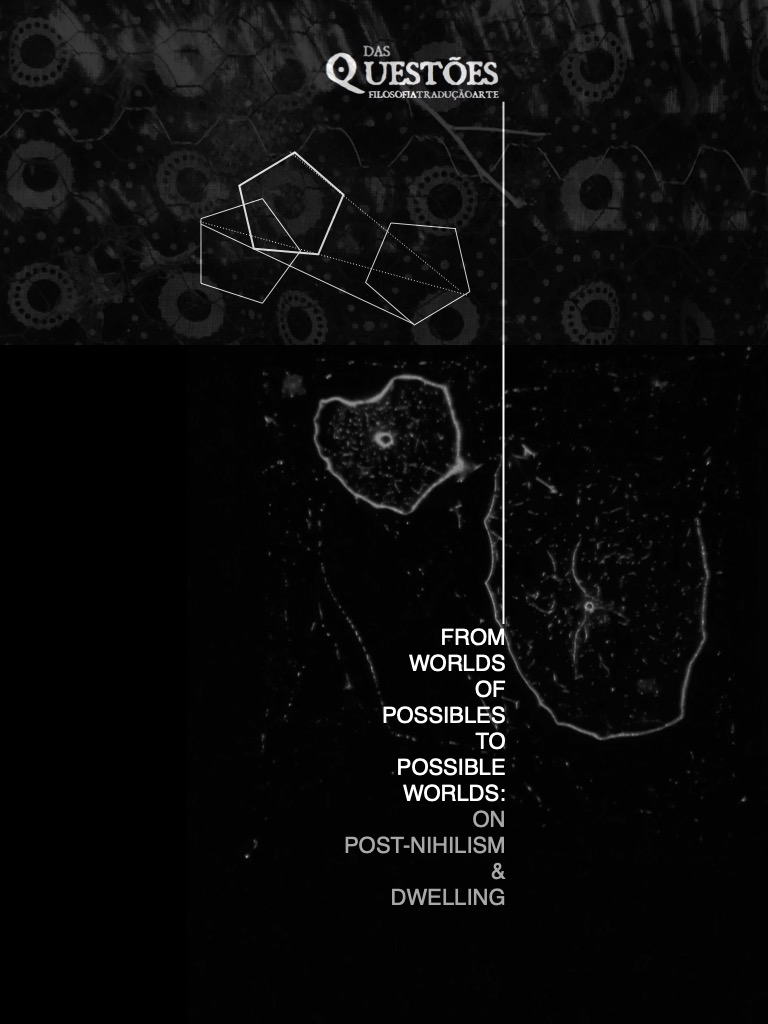Dismantling the World The Capitalocene, Effective Constructivism, and the Inhuman
Main Article Content
Abstract
An inhuman dimension haunts the world; but this dimension is repressed by what I call the effective constructivism, understood as what configures the world. Leaning on Moore’s analysis, first I will shed some light on the relation between the Capitalocene and effective constructivism. Using Haraway’s notion of the Chthulucene, in the second section I will break the plane of symmetry that effective constructivism produces between humans and nonhumans. In the third section, I will explain how the concept of the inhuman might be more efficient than the concept of the nonhuman to contest effective constructivism: the inhuman is the unconstructable part of the human that resists the humanist scheme at play in effective constructivism. In the last section, I will lean on Heidegger’s philosophy to imagine what dismantling the world of the Capitalocene could mean and why this dismantling might foster the decolonization of nature.
Downloads
Article Details

This work is licensed under a Creative Commons Attribution-NonCommercial 4.0 International License.
Authors who publish in this journal agree to the following terms:
Authors maintain the copyright and grant the journal the right of first publication, the work being simultaneously licensed under the Creative Commons Attribution License which allows the sharing of the work with recognition of the authorship of the work and initial publication in this journal.
Authors are authorized to take additional contracts separately, for non-exclusive distribution of the version of the work published in this journal (eg publish in institutional repository or as a book chapter), with acknowledgment of authorship and initial publication in this journal.
Authors are allowed and encouraged to publish and distribute their work online (eg in institutional repositories or on their personal page) at any point before or during the editorial process, as this can generate productive changes as well as increase the impact and the citation of the published work.
References
CLARK, Nigel. Inhuman Nature: Sociable Life on a Dynamic Planet. New York: Sage, 2010.
HARAWAY, Donna J. “Anthropocene, Capitalocene, Plantationocene, Chthulucene: Making Kin.” Environmental Studies, v. 6 (2015), p. 159-165.
HARNEY, Stefano, and Fred MOTEN. All Incomplete. Foreword by Denise Ferreira da Silva. Photos and Afterword by Zun Lee. Colchester and New York: Minor Compositions, 2021.
HEIDEGGER, Martin. Off the Beaten Track. Edited and Translated by Julian Young and Kenneth Haynes. Cambridge and New York: Cambridge University Press, 2002.
LYOTARD, Jean-François. The Inhuman: Reflections on Time. Cambridge and Malden (MA): Polity Press, 1991.
MOORE, Jason W. Capitalism in the Web of Life: Ecology and the Accumulation of Capital. London-New York: Verso, 2015.
NANCY, Jean-Luc. Adoration: The Deconstruction of Christianity, II. Translated by John McKeane. New York: Fordham University Press, 2013.
NEYRAT, Frédéric. “Escaping Humanism.” Stream 04 – Les paradoxes du vivant (2017). English translation available at: https://www.pca-stream.com/en/articles/frederic-neyrat-escaping-humanism-91. Accessed: 09/26/2021.

